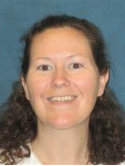| Abstract: |
Background:Family and friend caregivers play a critical role in advance care planning (ACP) discussions, which are difficult but necessary to carry out patients' goals of care. This role is particularly important among caregivers of patients with malignant gliomas (MGs), who are often tasked with quickly taking responsibility for healthcare communication. We developed and evaluated the feasibility, acceptability, and preliminary effects of a virtual communication skills training program to equip caregivers of patients with recurrent MGs with skills to navigate ACP conversations with patients and healthcare providers.Methods:Our 2-hour communication skills training combined a series of didactic exercises with roleplay scenarios and follow-up coaching through a booster call conducted 2 weeks after training completion. Caregivers were randomized to receive either the communication skills training or enhanced usual care (EUC), which included screening and the provision of targeted referrals. Assessments were completed at baseline (T1) and at 2 (T2) and 5 (T3) months of follow-up.Results:A total of 34 caregivers enrolled and were randomized, of whom 19 completed the T2 and 18 completed the T3 assessment. 10 of the 13 caregivers who completed the training participated in interviews at T2 about their experiences and perceived benefits of participation. At T3, results indicated a strong effect size for reduced anxiety and distress and increased preparedness for death in caregivers who received the intervention relative to EUC. Participants reported that the training helped them feel confident initiating ACP conversations, validated in their fears about death, and helped them feel supported and less alone.Conclusion:Despite the challenges of recruiting a highly distressed group of caregivers, there were notable benefits of our communication skills training. Additional larger trials are needed to rigorously evaluate the efficacy of the training program and those that include caregivers of patients with other sites and stages of cancer to determine the generalizability of findings. © 2024 Lippincott Williams and Wilkins. All rights reserved. |











